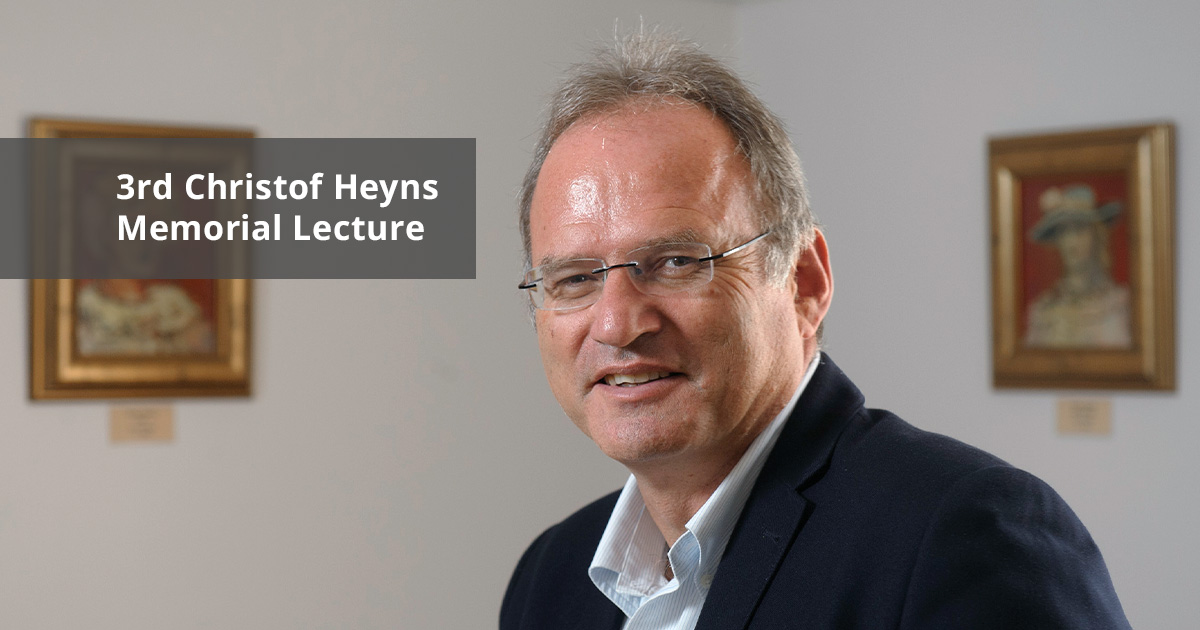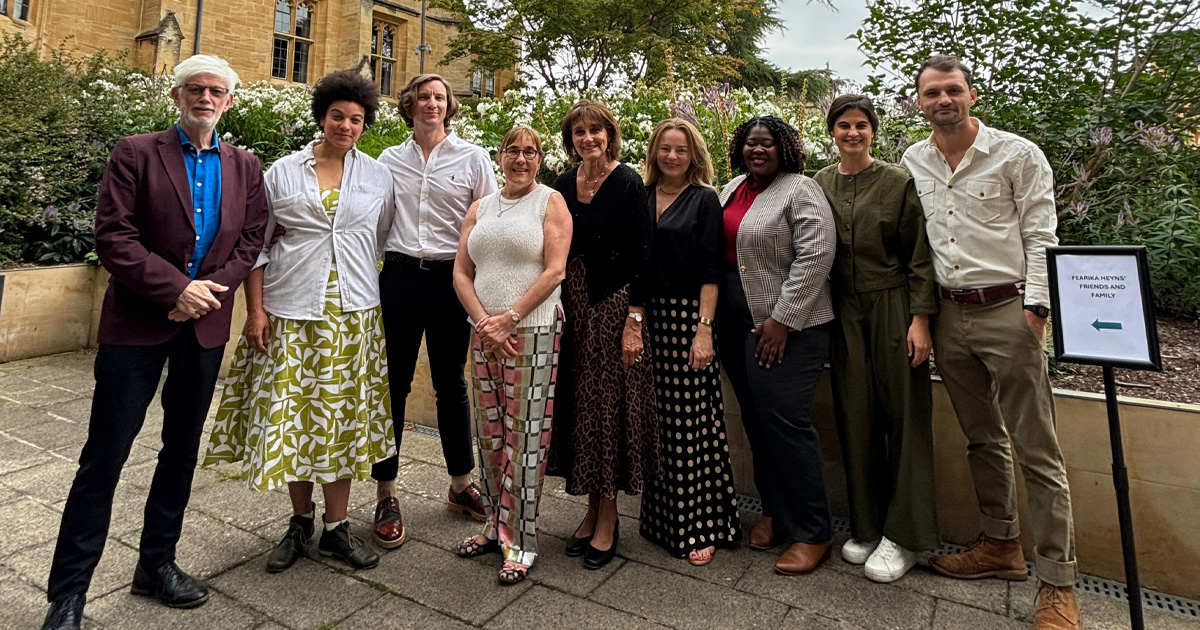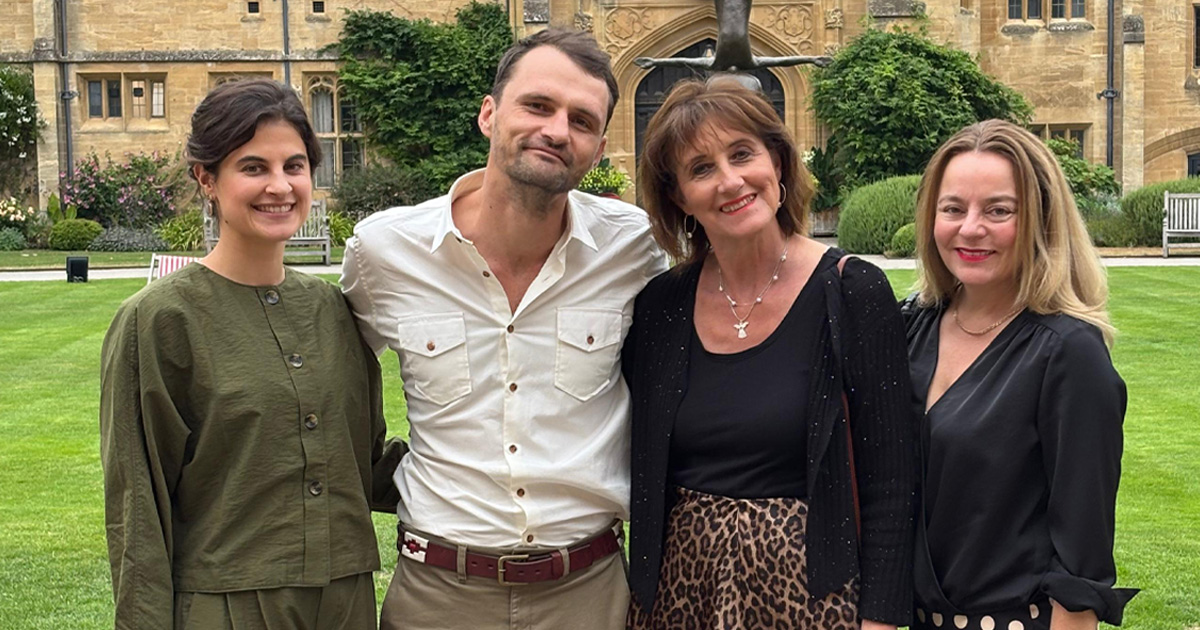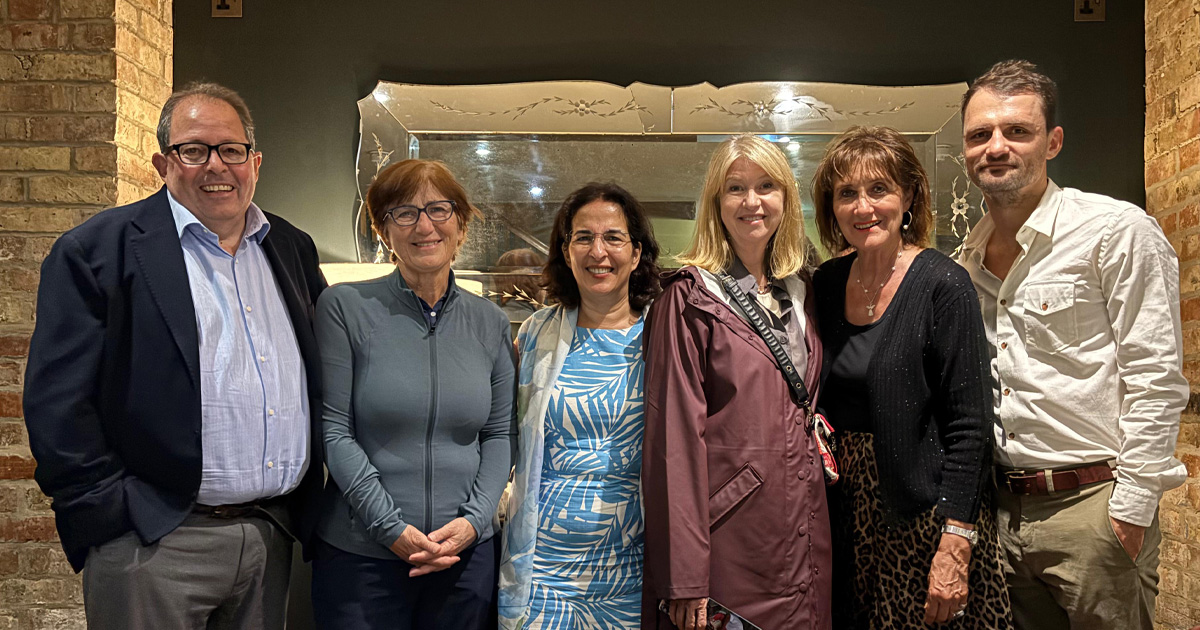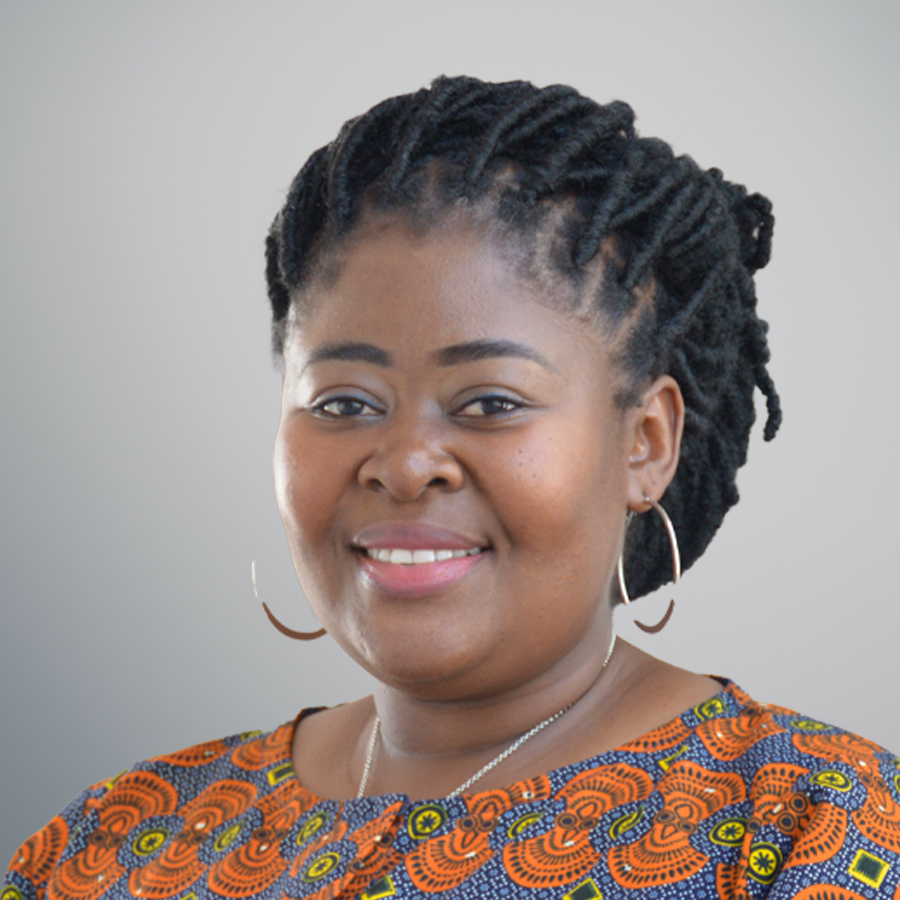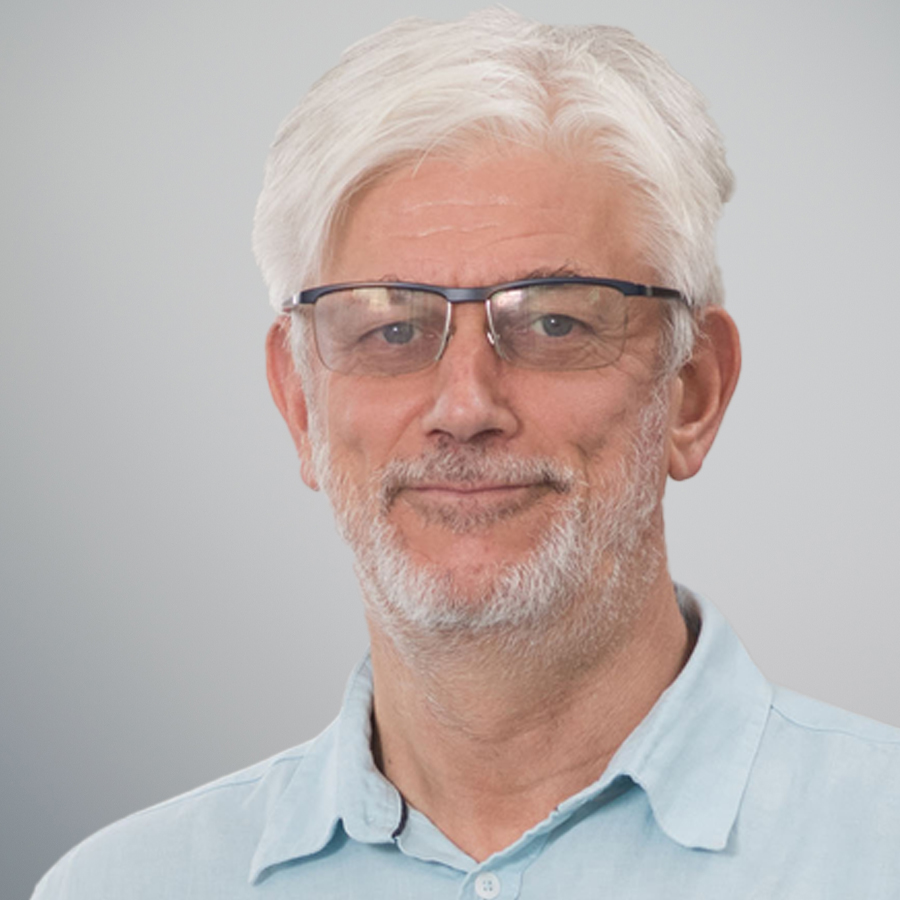On 24 July 2025, the Centre for Human Rights at the Faculty of Law, University of Pretoria (Centre), and the Bonavero Institute of Human Rights, University of Oxford, co-hosted the annual Christof Heyns Human Rights Memorial Lecture. Former South African Constitutional Court Judge, and Director of the Bonavero Institute, Prof Kate O’Regan, welcomed participants and moderated the proceedings.
Fearika Heyns, the wife of the late Professor Christof Heyns, reflected on his pragmatic out-of-the-box approach to life and creative problem solving. She recalled fondly how, at one time, she had trouble with her car and called Christof to come and assist. When he arrived, Christof thought it wiser to get something to eat, since that would give them the energy to creatively solve the problem. She also expressed gratitude to all the participants, including Christof’s colleagues and family who participated in the event, for celebrating his legacy.
Christof’s son, Adam, shared a video he produced, in which he pieced together the puzzle of his father’s life through photography and video imagery. This emotion evoking video showed the intertwined life of a father at home with his family, and that of the professor, advancing the cause of human rights.
Prof Frans Viljoen, from the Centre, remembered Christof as endlessly energetic and fun to be with, innovative and resourceful in driving forward initiatives like the Nelson Mandela World Moot Court Competition and the Pretoria University Law Press, and inspiring and provocative as teacher and mentor.
In the spirit of encouraging and fostering academic debate, which also reflects Christof’s collaborative approach to life, a three-person panel presented reflections on the topic: ‘International Human Rights Law in a Fractured World: Contemporary Challenges to the Authority and Legitimacy of International Human Rights Law’. Participants also had an opportunity to make comments and pose questions.
Prof Nazila Ghanea, Professor of International Human Rights Law, and coordinator of the Masters programme in International Human Rights Law at Oxford, recalled that, although Christof for many years taught on the Master’s programme, he started his teaching at Oxford in 2008 on the ‘Human Rights Summer School’. She sketched and contextualised the varied and multiple dimensions of his contributions, including as United Nations Special Rapporteur on extrajudicial, summary or arbitrary executions. She underscored his influential role in leading the elaboration by the UN Human Rights Committee of General Comment 37 on the right of peaceful assembly.
Prof Yuval Shany, the Hersch Lauterpacht Chair in International Law at the Law Faculty of the Hebrew University of Jerusalem gave his remarks next. He was a member of the UN Human Rights Committee including its chair while Christof served as a member. He is also an inaugural Accelerator Fellow at the Ethics in AI Institute in Oxford. Prof Shany noted that Christof had “a rare principled approach to human rights, mediated through common sense and pragmatism”. He further discussed three contemporary challenges to human rights. He asked the question whether international human rights mechanisms created in the mid-20th century are still “fit for purpose” to deal with 21st century human rights challenges. To him, these mechanisms are no longer suitable to address modern concerns on new and emerging technology, including algorithmic data integrity and transparency. He further identified ‘rights inflation’ and ‘mechanism inflation’ as contemporary concerns.
Mention should be made that some participants raised concerns about Prof Shany’s participation in the panel, based on the view that he had in his capacity as an academic not distanced himself from the actions of the Israeli government that violate international law. When asked if the situation in Gaza is an ultimate litmus test of the application of international human rights and humanitarian law, Prof Shany responded that “all life is of value, including Gaza” and emphasized that other situations of conflict also pose challenges to international law. Prof Shany also addressed the risk of political marginalization of human rights in an age of populism, polarization and increased attention to security concerns. (It is noted that Prof Shany co-signed a letter, date 10 July 2025, earmarking The Israeli government’s plan to “concentrate” the population of Gaza in a so-called “humanitarian city” to be established on the ruins of Rafah “manifestly illegal” (https://www.justsecurity.org/116904/israeli-international-law-scholars-gaza/).
Prof Dino Kritsiotis, Professor of Public International Law and Director of the Nottingham International Law and Security Centre at the University of Nottingham, reflected on Christof’s life, noting his "perseverance in the sense of human rights thinking in the minute everyday life". He questioned shifting global dynamics reflecting on the resettlement of Afrikaners as refugees to the United States, while simultaneously cracking down on immigrants.
This was the third Christof Heyns Memorial Lecture, following a first in 2023
Christof, who passed away in March 2021, was an internationally renowned human rights lawyer, legal educator, and activist, director of the Centre for Human Rights, Dean of the Faculty of Law at the University of Pretoria, United Nations Special Rapporteur on extrajudicial, summary or arbitrary executions, and a member of the UN Human Rights Committee. A volume of essays on various aspects of Christof’s life has been published by Pretoria University Law Press (PULP), A life interrupted: Essays in honour of the lives and legacies of Christof Heyns.
The Centre acknowledges the financial support of the European Union through the Global Campus of Human Rights. The Global Campus is a network of human rights institutions working on research and training of human rights across eight regions. The Centre, which coordinates the Masters in Human Rights and Democratisation in Africa (HRDA), is the regional headquarters of the Global Campus Africa region. Christof was instrumental in getting the HRDA programme introduced in 2000.
For more information please contact:
Tel: +27 (0) 12 420 6703
michelle.maziwisa@up.ac.za
Centre for Human Rights
Tel: +27 (0) 12 420 3228
frans.viljoen@up.ac.za
